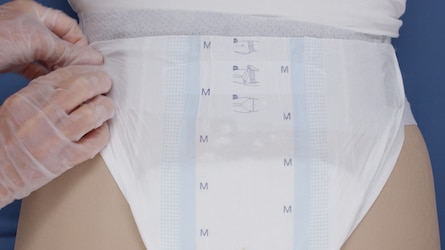People with incontinence have their own unique needs and strengths. To maintain independence and prevent incontinence it is important to find individual solutions to meet their individual needs and support their identified strengths. At TENA, this is our approach to continence care. And the goal is to help people with incontinence maintain dignity, regain confidence and take back control of their lives.
Person-centred continence care benefits everyone
By combining over 60 years of incontinence expertise with the latest digital health technology, we assess the needs of each individual and create unique person-centred care plans with the right toileting routines and the right product type, size and absorption level. Care plans also include the right hygiene routines and skin health products.
A person-centred care approach doesn’t only benefit those living with incontinence. It also benefits caregivers by reducing product checks, changes, leakages and laundry as well as reducing back bends and stress. Care facilities also benefit as person-centred care is proven to reduce leakages1, which cuts product consumption and waste while reducing laundry and energy use.
When it comes to continence care, a person-centred approach benefits everyone.









